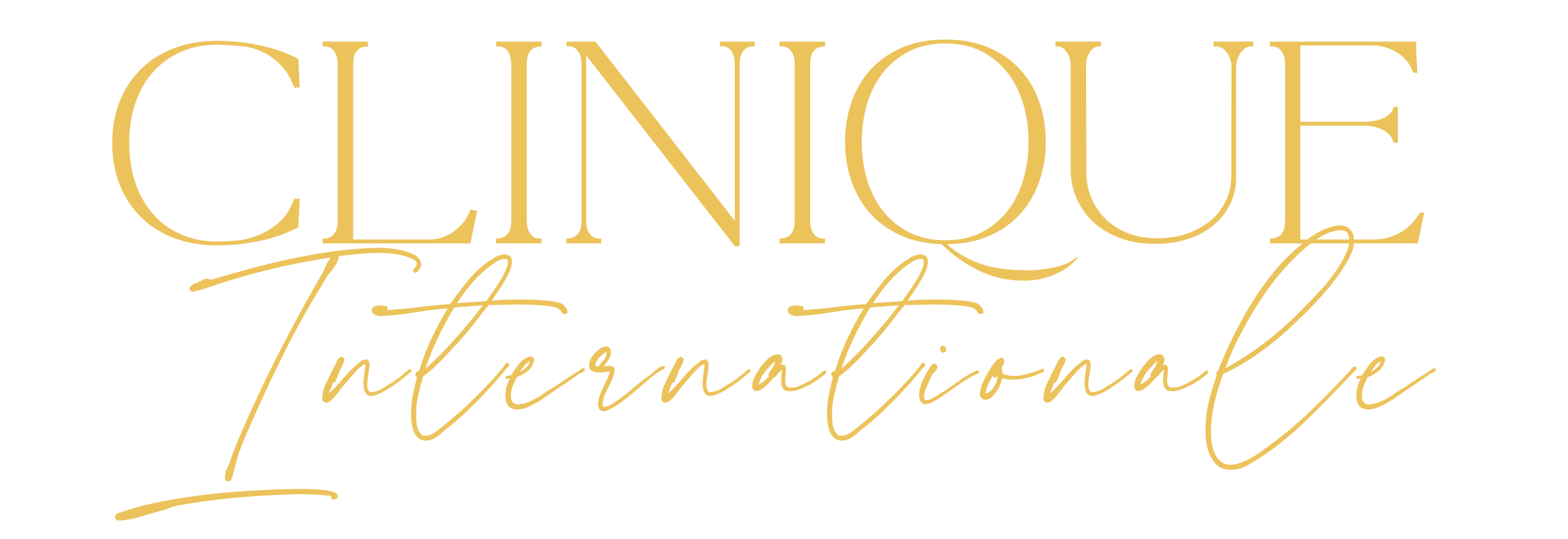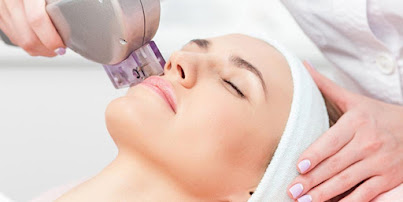Introduction to Skin Tag, Mole & Wart
People encounter abnormal skin growth in various parts of the body in the form of skin tags, moles, and warts which on exposed areas like the face, neck, back, and chest look aesthetically unpleasant, and in some other areas, it becomes uncomfortable. Experience effective skin tag, mole, and wart removal as part of our cosmetic treatments, ensuring clear, smooth skin and enhanced confidence.
SKIN TAGS
They are cutaneous growths noticeable as soft growth of heaped-up skin and are usually benign by nature. Men and women are equally affected. About 50 to 60% of adults will develop at least one skin tag in their lifetime, with the probability of their occurrence increasing after the third or fourth decade of life. It occurs more commonly in people suffering from lifestyle diseases like obesity, hypertension, cardiovascular disease, and metabolic syndrome. Commonly affected areas are skin folds, such as the face, axilla, neck, eyelids, and groin.
The lesions are skin-colored, brown, and even red ovoid growths that are often pedunculate and attached to a fleshy stalk. Skin tags are small, between 1 to 5 mm, but rarely can grow to be 1 to 2 centimeters in size. The skin tag, if left unchecked may increase in size due to the constant friction with clothing and skin fold. However, the histological features remain the same, and these lesions have a very low or no risk of malignancy. Skin Tag may become bothersome and painful when it gets rubbed continuously with clothes or the adjacent skin.
TREATMENT -methods of removal include the following
- Snip excision
- Cautery
- Cryosurgery
- Carbon dioxide (CO2) laser
Cautery is one of the most outdated methods of removing tags. Removal via excision will cause unnecessary bleeding of the area cryosurgery has a greater down time and removal via cryotherapy can lead to bad scarring. To overcome all these disadvantages CO2 laser was introduced. It removes tags in no time giving us a clean blood free area with the least amount of pain to the patient. It is also scientifically proven that laser aids in better healing.
In CLINIQUE INTERNATIONALE we have USA-FDA approved MORE-XEL fractional CO2 laser by BISON which works on all skin types.
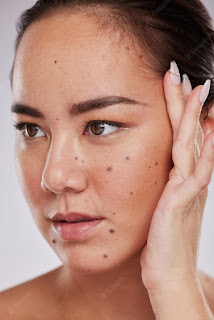
MOLES
Moles are caused by abnormal growth cells in the skin. They often appear as small, dark brown spots and are caused by clusters of pigment-forming cells (melanocytes). Abnormal growth doesn’t always mean cancer. Overall, moles are extremely common, estimating an average of 10 to 40 moles per person. It is also known as nevus in medical terms. It is an area of pigmented growth on the body which may be present since birth or may develop later in life. If developed later then the cause could be sun exposure and the effect of melanin production. Most
commonly it appears as brown however, it can come in a variety of colors, including red, pink, and flesh-colored. Some may also have hairs that grow from them. Most moles are benign, but it’s still important to keep an eye on them for any changes that could indicate cancer growth.
PROCEDURE FOR REMOVAL.
The concern area where the mole is present is numbed using local anesthesia injection which makes the procedure painless. After that laser setting is done and shots of energy through the machine handpiece are emitted on the mole area which destroys the lesion in no time. When the laser comes into contact with the skin, it vaporizes a very thin, precise layer on top of the mole and does not damage the surrounding tissue. This is repeated until the mole is level with neighboring skin, resulting in an improved cosmetic appearance.
POST CARE
The treated area is then covered with antibacterial and soothing ointment. If the mole is big then a dressing with transpore is given. Patients may have a little stinging sensation after the procedure usually subsidies in a day. Usually, when the mole is big or deep there are chances that after removal of mole, some melanin pigments would still be in the dermis dispersed uniformly or locally. It becomes difficult to treat such pigment but, we have a solution for this at CLINIQUE INTERNATIONALE we have an Nd-YaG laser which can be used to remove the pigments non-invasively. Scar revision creams like Mederma or Cicatrix are prescribed to the patients to make the treated area heal as well as neighboring skin.
MOLES WITH HAIR
In certain cases, we have moles covered with hair and it is very difficult to get rid of them. Here at CLINIQUE INTERNATIONALE, we have options for laser hair removal with either diode or NdYag laser depending on the type of hair. If the hair is stubborn we also have the option of permanent hair removal via electrolysis
ADVANTAGES
As it is a non-invasive procedure, there are minimal chances of infection. Multiple moles can be treated in a single session. Laser beams can reach parts of the face, nose, and ears that may be difficult to reach through other procedures.
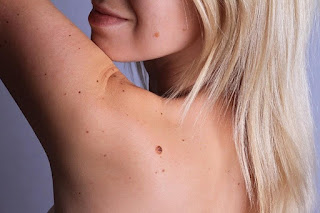
Warts
Warts are non-cancerous (benign) skin growths that develop on different parts of the body and come in various forms. They are caused by viruses. Warts are contagious and very common. Most people will have one at some point in their lives. Although they can affect people at any age, warts are most common among children and teenagers. Some warts are harmless and will go away on their own within a few weeks or months. But they can be bothersome and unattractive, and some people feel ashamed. Several different treatments can make warts go away more quickly but they don’t always work. Most warts don’t cause any bothersome symptoms. Some may cause itching, tightness, or a feeling of pressure. Warts might be painful too, particularly those on the soles of your feet.
Types of warts :
Common warts: raised with rough surface commonly found under fingernails or toenails which are difficult to treat
Plantar warts: also known as mosaic warts are often found on the soles of the feet, and may appear flat with added discomfort while walking
Mosaic warts: are white and about the size of a pinhead. They are usually found on the balls of the feet or under the toes, but may also spread and cover larger areas on the entire sole
Filiform warts: have a thread-like, spiky appearance. Because they often appear on the face and sometimes look like tiny brushes, they are usually considered to be bothersome.
Genital warts: are small hard nodules with rough surfaces. They are sexually transmitted and affect only the genital area. This information does not cover genital warts.
Flat warts cause aesthetic concern as they appear in clusters mainly around the eyes and seldom on the hands. The non-invasive option ’wait and watch’ is often used to evaluate the activity of the wart. The prevailing virus within these warts tends to invade the surrounding healthy tissues. So it’s advisable to treat warts surgically and remove the offending virus from the epidermal layer
TREATMENT- there are various options to treat warts
1) Chemicals- like salicylic acid, salicylic in combination with lactic acid, and TCA- trichloroacetic acid. The drawback with this method is that they are time-consuming and most of the time don’t provide satisfactory results
2) Cryotherapy- it utilizes the mechanism of low temperature to destroy the cells.
Cryopens are available without a prescription. Again this takes a long time and does not give 100 percent results
3) Special ointments and solutions: Ointments and solutions containing other medications were tested too, including 5-fluorouracil (a substance that inhibits cell growth), acyclovir, imiquimod (antiviral medications), and zinc.
4) Injections using different kinds of medicine:- Various medicines can be injected into the wart. These include bleomycin and 5-fluorouracil (both drugs inhibit cell growth), interferons (drugs that affect the immune system), and specific antigens (substances that, like vaccines, trigger an immune response).
5) Curettage: Curettage involves cutting or scraping warts off with a special instrument. The wart is often first treated with a salicylic acid plaster or solution
6) Laser surgery: Here the wart is heated and destroyed using a laser beam. This treatment is the least invasive and most ideal
7) Pulsed dye laser treatment: This treatment involves using a laser beam to heat and destroy the narrow blood vessels that supply blood to the wart. The aim is to stop the skin cells from multiplying
8) Erbium YAG laser: This is a laser treatment that aims to destroy the wart cells by strongly heating the fluid in them for a short time.
9) Photodynamic therapy: First, a gel is applied to the wart and left on for about three hours. The gel contains a special chemical substance that is then activated by light so that it can destroy the
wart tissue.
HOW ARE WE DIFFERENT?
CLINICAL INTERNATIONALE, our renowned surgeons and laser specialists excel in cosmetic procedures, constantly updating their knowledge and incorporating the latest laser technology. Dr. Sweta Gupta, a distinguished cosmetologist, addresses diverse skin concerns from daily care to advanced laser therapies. Our clinic boasts USA-FDA-approved lasers, including the MORE-XEL for mole, wart, and tag removal. Originally developed in 1964 by Patel and colleagues at Bell Labs, the CO2 laser remains a staple in various specialties due to its precise performance. We prioritize perfection, especially for facial procedures, ensuring every task is executed with utmost care and precision to maintain our clients’ trust.
CONFUSED?
Let us help you.
Yes, there are so many options, which is good for you? How will you decide? Let your doctor do the job because in cases like diabetes and high cholesterol, it is easy to treat but, difficult to control. Also, if the cause of these is viral, the patient may need some anti-viral therapies to control the spread. Below is a list of tables that will help summaries and help you with a basic understanding of the three
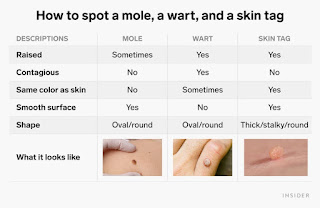
Various treatment options exist for mole, skin tag, and wart removal, ranging from home remedies to minor surgeries and laser procedures. However, it’s advised against self-treatment, especially on the face, due to potential scarring and pigmentation issues. Trust your surgeon to determine the best approach for you. At CLINIQUE INTERNATIONALE, we offer a plethora of options, including USA-FDA-approved lasers like MORE-XEL CO2, ensuring painless and comfortable procedures. Moles, skin tags, and warts, particularly on the face, warrant medical attention. Dr. Bhavesh Gupta and our team prioritize patient satisfaction, providing exemplary treatment and post-operative care for optimal outcomes.
